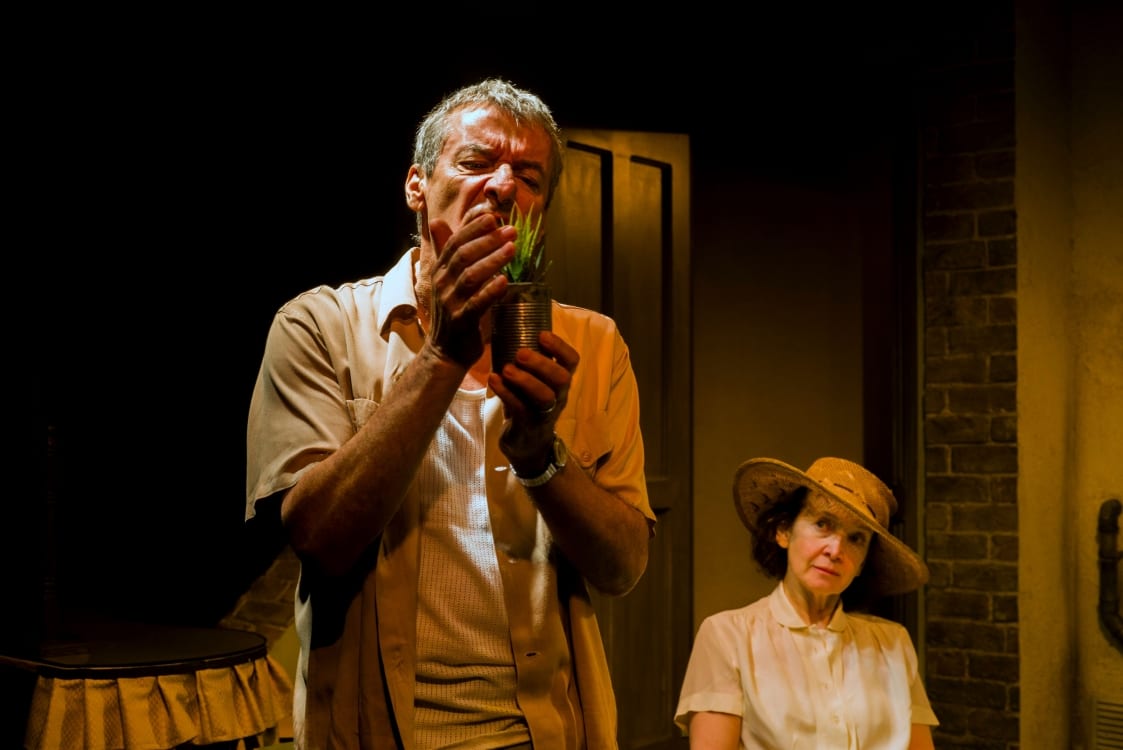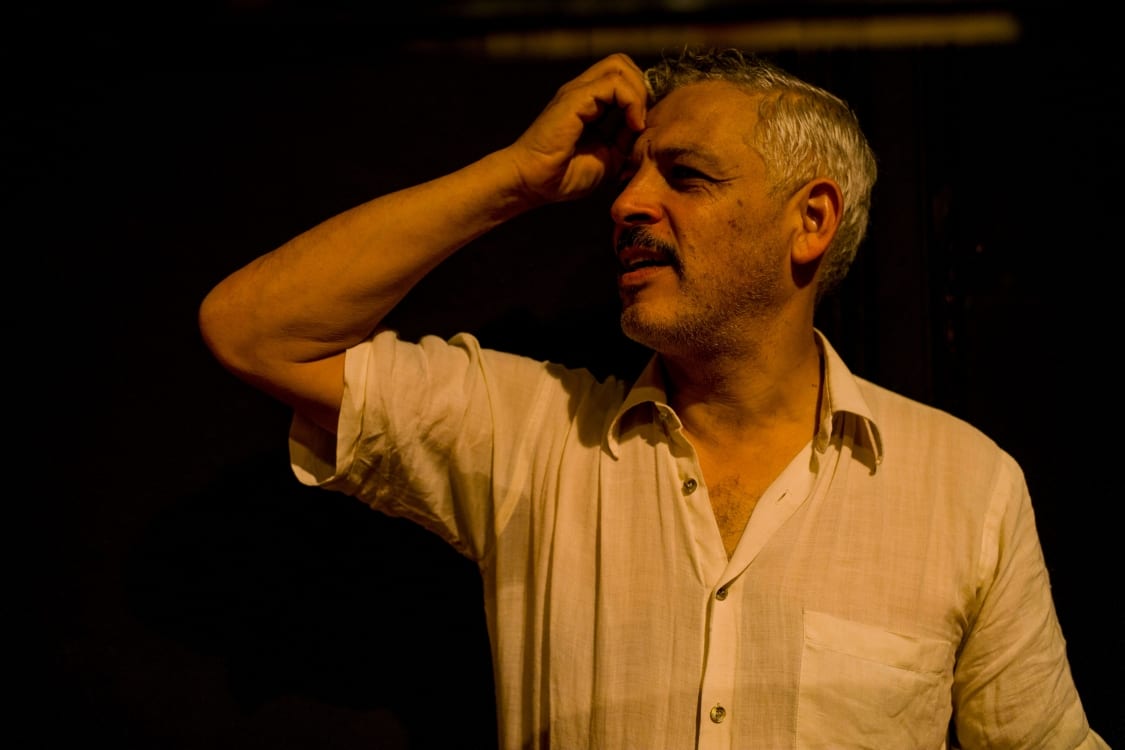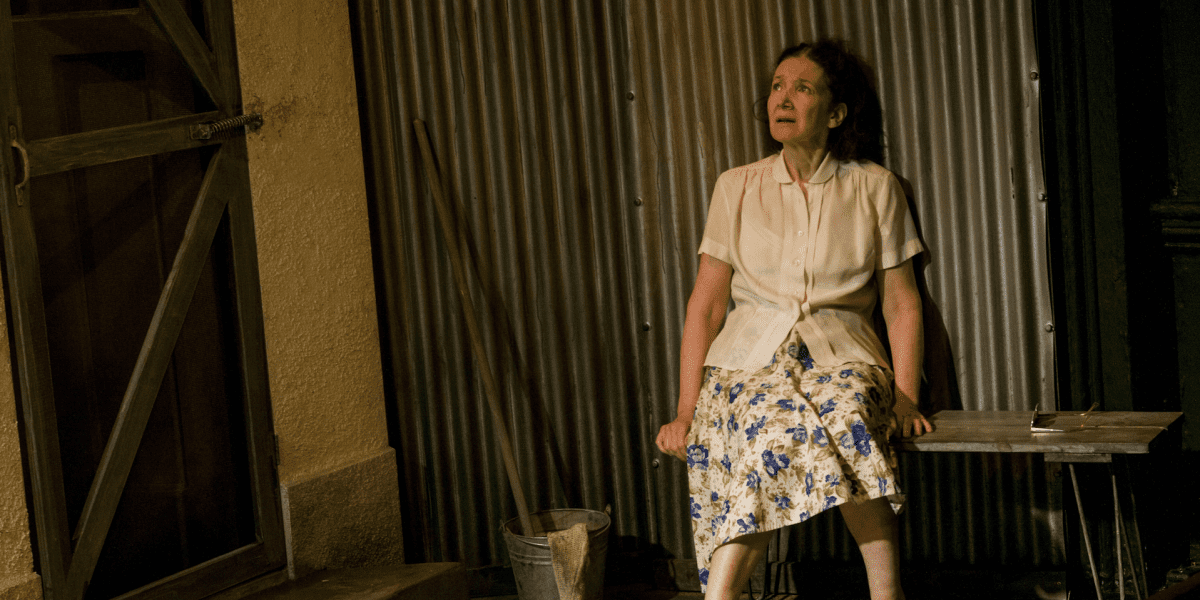Athol Fugard is a playwright of world status and he has written almost 40 plays now. This work dates from 1978 but it is set in Port Elizabeth in 1963, a couple of years after the Sharpeville Massacre. It is an ideal piece for the intimate space of the Finborough Theatre with just three actors and a slow burn plot that reaches a gut-wrenching climax in the final act. And what it illuminates so well is the many different ways that a racist and authoritarian regime can damage those brave enough to speak out, even quietly. Physical torture is, of course, the most obvious fear but psychological harm can be just as long-lasting in its effects.
Afrikaner Piet and his neurotic wife Gladys live in a poor section of Port Elizabeth. We learn that they were driven from his farm, and ruined, by an extended drought and that he came to support the struggle against apartheid when driving a local bus and seeing the impact on black South Africans. We discover that Steve, his best friend in the group that he joined, has decided to leave the country and head for England with his family after being detained and subjected to psychological torture. As the play reaches its heart-rending climax we learn that all three have suffered different but deep wounds from their treatment by the security police of the apartheid regime. The saddest part is that their trust in each other has been compromised.
The set for tiny ‘stage’ at the Finborough is cleverly designed so that we can see both the backyard of the cottage and Gladys’ bedroom – though this does mean that those in the front row are almost part of the action. The corrugated iron fence and the rickety furniture of the backyard – with its table set futilely for a farewell meal that never takes place – is just right. At the side is another table with some aloe plants which provide Pete with an interest to fill his empty days – and a telling metaphor for a society that is so short of love and compassion that all that survives in the parched landscape is a range of sharp and spiky plants that can do without water.
There is a fine performance from Dawid Minnarr as Pete. He is the endlessly patient husband who keeps a calm demeanour that looks increasingly fragile as we learn the traumas he has had to deal with – and by the end his calmness looks like lonely desperation. Janine Ulfane is Gladys, the wife who had been caught up very reluctantly in the struggle and has experienced events that have been too much for her – her anger with her husband is mixed with admiration for his selfless support for what he sees as right and, in the climactic confrontation with Steve, she is superb. David Rubin is Steve, the ‘coloured’ man facing up reluctantly to leaving his homeland because he no longer sees a future for himself or his family, and is entirely credible as the disillusioned campaigner no longer sure of his friend. Janet Suzman directs with a sureness of touch and a complete grasp of the emotional currents that run – mostly – just below the surface.

This is a play that deserves to be seen. With a resurgence of racism of many forms in the contemporary world, it is right that we are reminded of the brave struggle of many ordinary South Africans against the regime that privileged the few and oppressed the many.

